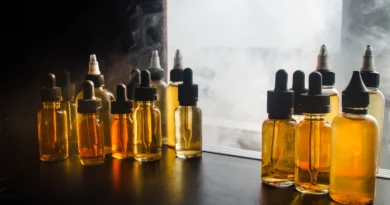Which Vitamins are Best for Vaginal Health?
In addition to improving your personal hygiene, what you eat can greatly improve your vaginal health. Maintaining good vaginal health is way easier than you think. Knowing your own body and recognizing what works for you is the first step.
It’s time to get concerned with your vagina if you aren’t already. It is critical to pay attention to what you eat to ensure your health and safety.
Also, speaking with your gynecologist if you notice anything unusual can save your life. Once you observe a change in your vagina, seek treatment immediately. If you already have an existing infection, ensure that you keep up with your medication.
Genital herpes is one vaginal infection that comes with pains and itchiness. Although there is no herpes cure, there is an over-the-counter genital herpes treatment. You don’t need a doctor’s prescription to get them, and they are totally safe. Genital herpes treatment will help you ease the pain, discomfort, and itchiness that comes with the infection.
Below are vitamins that can help your vaginal health.
- Vitamin A
This vitamin is necessary for the growth of mucous membranes, which include the vaginal lining. It aids in the production of moisture and collagen.
Vitamin A can be taken orally, but in excess should be avoided. Extremely high levels of vitamin A can cause liver damage, but it’s actually quite difficult to overdose.
- Vitamin B
Both hormonal and dietary factors can influence vaginal secretions. When it comes to vaginal health, proper immune function is critical. Vitamin B complex, which contains all eight types of vitamin B, improves immune function.
It can be consumed as a supplement or absorbed through foods such as poultry, fish, potatoes, and bananas. However, too much can be hazardous. It can cause muscle weakness, stomach problems, and painful lesions.
- Vitamin E
This is yet another vitamin that can aid in vaginal lubrication. Many lotions and moisturizers contain vitamin E, which has antioxidant and anti-inflammatory properties that benefit skin care. These same properties may help improve vaginal lubrication.
Vitamin E vaginal suppositories may help postmenopausal women. Vitamin E is thought to help with estrogen stability so it could help with vaginal atrophy symptoms such as dryness. Although research suggests that vitamin E suppositories are a promising option, it is unclear whether oral vitamin E can achieve the same results.
Vitamin E can also be obtained through a variety of foods, such as plant-based oils, nuts, seeds, fruits, and vegetables. Pumpkin and sunflower seeds are both beneficial to the vagina. Vitamin E is completely safe when obtained naturally through food.
High doses of vitamin E, on the other hand, may cause serious side effects by interfering with the blood’s ability to clot. This could result in a hemorrhagic stroke, or bleeding in the brain, though this is uncommon.
- Vitamin D
Although vitamin D is best known for its role in bone health, research suggests that it may also aid in female lubrication. During menopause, both oral vitamin D supplements and suppositories may reduce dryness and improve vaginal health.
Because vitamin D is found in few foods naturally, it is advisable to take dietary supplements containing it.
NB: If you live in a colder, cloudier climate, you are more likely to be deficient in vitamin D.
Other Nutrients For Vaginal Health
Sea Buckthorn Oil
Sea buckthorn is a plant that consists of a mixture of vitamins and active ingredients that are used in medicine to help slow the aging process. Furthermore, the Sea buckthorn plant produces oil that is used to treat various skin conditions such as eczema, acne, and wrinkles.
Sea buckthorn oil is derived from the sea buckthorn plant’s leaves, seeds, and berries. As such, it is a natural supplement. It contains essential fatty acids such as linoleic acid, which can strengthen the skin’s barrier and protect against water loss.
According to recent research, this rich oil can safeguard against the loss of moisture and thinning of the vaginal wall. Daily consumption of sea buckthorn oil is ideal. It can lead to significant improvements in vaginal tissue integrity.
Omega Three Acids
Fish oil is an omega-3 fatty acid supplement that can help with weight loss and heart health. Omega-3 fatty acids may also help to hydrate and moisturize the skin. According to some research, it may also improve lubrication, particularly during menopause.
Omega-3 fatty acids improve circulation and blood flow, which benefits your sexual drive. Furthermore, studies have shown that fish oil is more effective than ibuprofen at relieving severe menstrual cramps.
Stay Hydrated
It is ideal that you take eight glasses of water daily. Just the way water quenches your thirst. Your vagina also needs water to be hydrated. Consuming enough water can also keep your vagina free from unusual odors.
What to Avoid
Now that you know the vitamins that the vagina needs, you should also know things to avoid.
Avoid Excessive Sugar
Excessive sugar is also bad for your vagina. It can specifically harm or kill important vaginal bacteria. In essence, sugar is the total opposite of a vitamin supplement. Yeast infections, bruising, and irritation can result from a bacterial imbalance. These are the three things you absolutely do not want to deal with.
Reduce Your Intake of Processed Foods
Vitamins and supplements promote the growth of beneficial bacteria in the vagina. On the other hand, processed foods suppress the immune system. This can allow dangerous bacteria to take control. Furthermore, it can cause a variety of issues such as yeast infections, dryness, and pain during sex.
Final Thoughts
Your vagina should be healthy at all times. Since vitamins are great contributors to vaginal health, prioritize high vitamin fruits, food, and supplements. Do this, especially if you are in the menopause phase.
Supplements such as vitamin E, and vitamin D, may help increase vaginal health and lubrication. Sea buckthorn oil and fish oil are needed as well. However, before incorporating any supplements into your diet plan, consult with your healthcare provider. Especially if you have any other serious medical conditions or are taking other medications.




